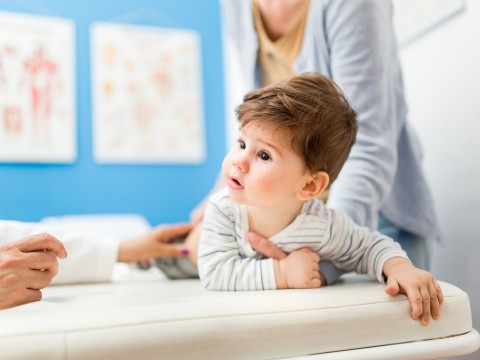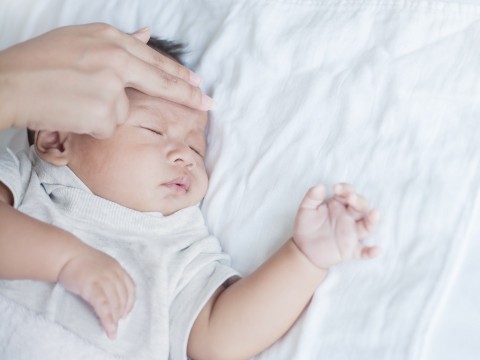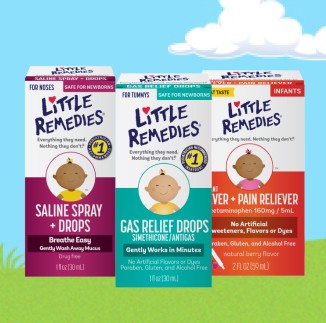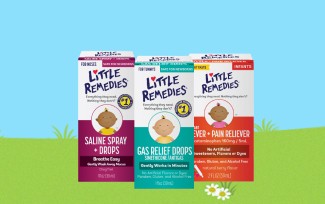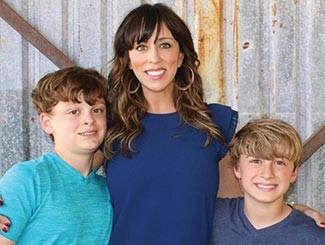


What You Should Know About Developmental Milestones: Written By An Autism Mama
Written by on April 5th, 2016
I think most parents would agree it’s amazing how fast your baby grows and changes. The first smile. The first laugh. The first time she reaches for you. Then before you know it she’s climbing out of her crib and performing magical feats of strength. Who knew babies were so stealthy?!
The reality is your baby will start to hit her developmental milestones quickly and she’ll tend to hit lots of milestones simultaneously, so it happens really fast. When she’s three months old, she’ll start to grasp objects in her hand. She’ll hold up her head and she’ll enjoy snuggling in your arms. Those are all examples of three different developmental skills: fine motor, gross motor and sensory.
If you’re a first-time parent you’ve probably heard a lot about “milestones,” especially the “red flags” that I’ll discuss later. You don’t have to be a milestone maniac, but you should keep an eye on your baby’s development for very good reasons.
Why all the fuss? Well, simply put, developmental milestones are important because these skills are vital for how your baby will experience and interact with the world around her. If you close your eyes and imagine her world, she needs all her skills to bring that image to fruition.
Fine Motor Skills
Fine motor skills are small movements like holding a pencil, coloring with crayons, stringing beads or playing with Legos. Think dexterity. The ability to hold and manipulate small objects is important because your child will need these skills for self-care like using a utensils to eat, buttoning buttons, zipping zippers, writing, etc.
Gross Motor Skills
Gross motor skills are larger movements that require strength and coordination like crawling, jumping, skipping, walking, running, waving, pulling, etc. These skills are made with the whole body as opposed to fine motor skills that are made with smaller muscle groups.
Sensory/Social Skills
These skills are what we use to communicate with the world around us like hearing, tasting, touching, seeing and smelling. It’s not just the action, but also the processing. How is this information received and what does the brain/body do with it? From a cognitive perspective, sensory skills are the foundation for learning.
Timeline of Milestones
When it comes to milestones, remember that every baby is different and they develop at different speeds. Here are some general guidelines about the first skills you should see.
3 Months
Fine Motor Skill – Your baby can hold a small object in hand
Gross Motor Skill – When put in a sitting position, your baby can raise her head
Sensory Skill – When you hold your baby you can feel her body relax and she will cuddle
5-6 Months
Fine Motor Skill – Your baby should be reaching for toys and possibly holding her toys briefly, She can follow objects with her eyes in all directions.
Gross Motor Skill – She rolls from back to side and rolls from back to front, she can raise chest and upper part of abdomen during tummy time.
Sensory Skill – She responds with sounds when people talk and smile at her, she can calmed by caregiver when upset
8 Months
Fine Motor Skills – She keeps her hands open and relaxed most of the time, she’s starting to pick up small foods
Gross Motor Skills – She can sit up by herself and hold up her head with ease
Sensory Skills – You baby knows her own name and responds by looking when called, she has favorite toys and explores new toys
12 – 15 Months
Fine Motor Skills – She can give a toy to caregiver when asked, she likes to explore, she can put objects (like toys) in a container
Gross Motor Skills – She reaches for toys while sitting, she can walk alone, she can squat and stand up
Sensory Skills – You baby likes attention from others and exhibits behaviors to get reactions, she likes hugs and affection from familiar people
My Story: Missed Milestones & Autism
Before I dive into somewhat scary territory for new parents, I’d like to begin by saying my oldest son was diagnosed with Autism Spectrum Disorder in 2007. Today he’s 11 and he’s thriving. If you are worried that your child could be autistic because he or she is missing milestones, your fears are valid. But do not despair.
In my personal experience as a new mom, my son was hitting some milestones and not others. We weren’t in a situation where he had glaring problems. In fact, it was so subtle that our pediatrician dubbed him a “late bloomer.” In my heart, I knew something was wrong, but I was a first-time mom and I was unsure about almost everything, so I trusted the late bloomer theory.
To make a very long story short, a trusted professional sat me down one day and asked if he had been tested for autism. As soon as she said it, I knew she was right. And she was. From that point on, we did (and have done) everything possible to get him the support he needs.
My Advice
If you suspect your baby is missing milestones, do something about it. Whether it’s confiding in a family member or chatting with your pediatrician, share your concerns. That is truly the first step.
Sometimes autism isn’t the cause. It could be a sensory issue or a motor skill issue. If so, therapy is available and it works wonders. The earlier you intervene, the better. I know lots of older kiddos who needed speech therapy or sensory therapy as youngsters and now their issues are resolved.
Don’t feel embarrassed or blame yourself. If your baby is missing milestones that isn’t a reflection of your ability as a parent or the love you have for your child. The best thing you can do is figure out a plan of action.
An autism diagnosis is not the end. It’s just the beginning of a new chapter. One of the first lessons I learned about autism was to acknowledge it. Accepting the fact that our path as a family would be slightly different than others put us all in a mindset where we could help my son.
Which first milestone do you remember the most? Share your story with us in our Facebook comments!


